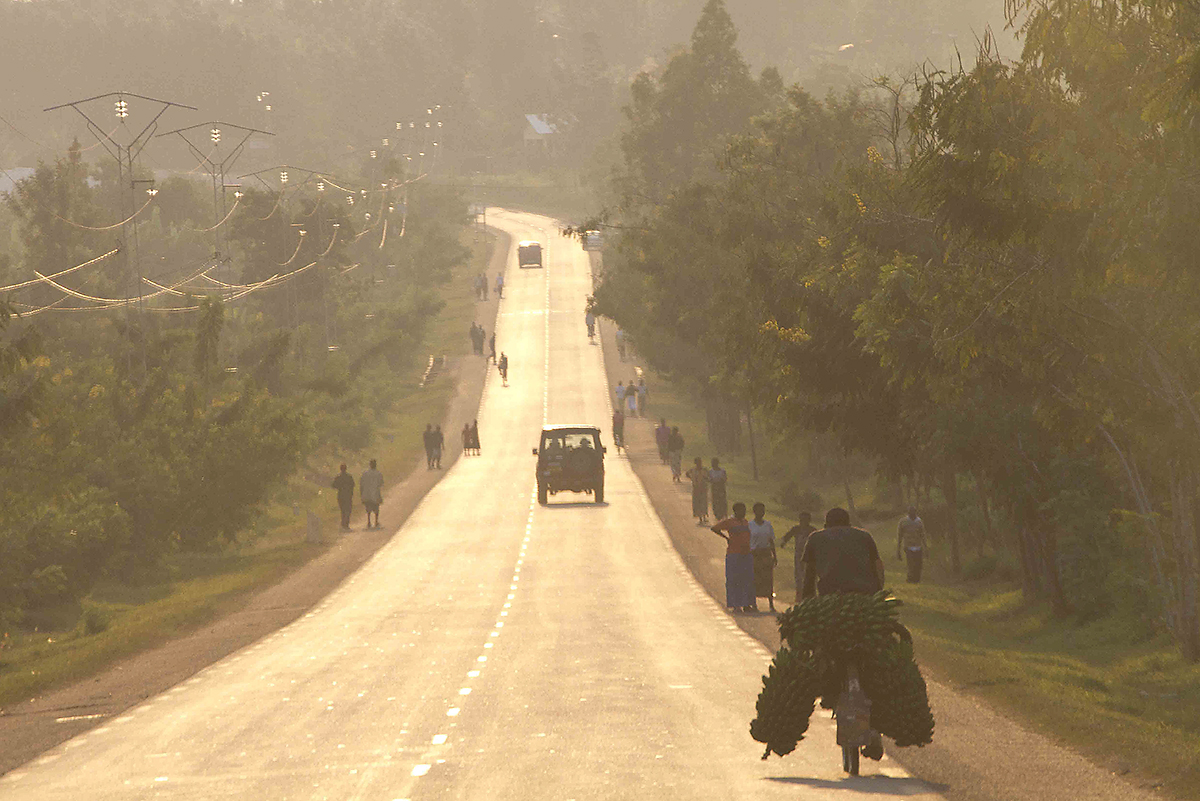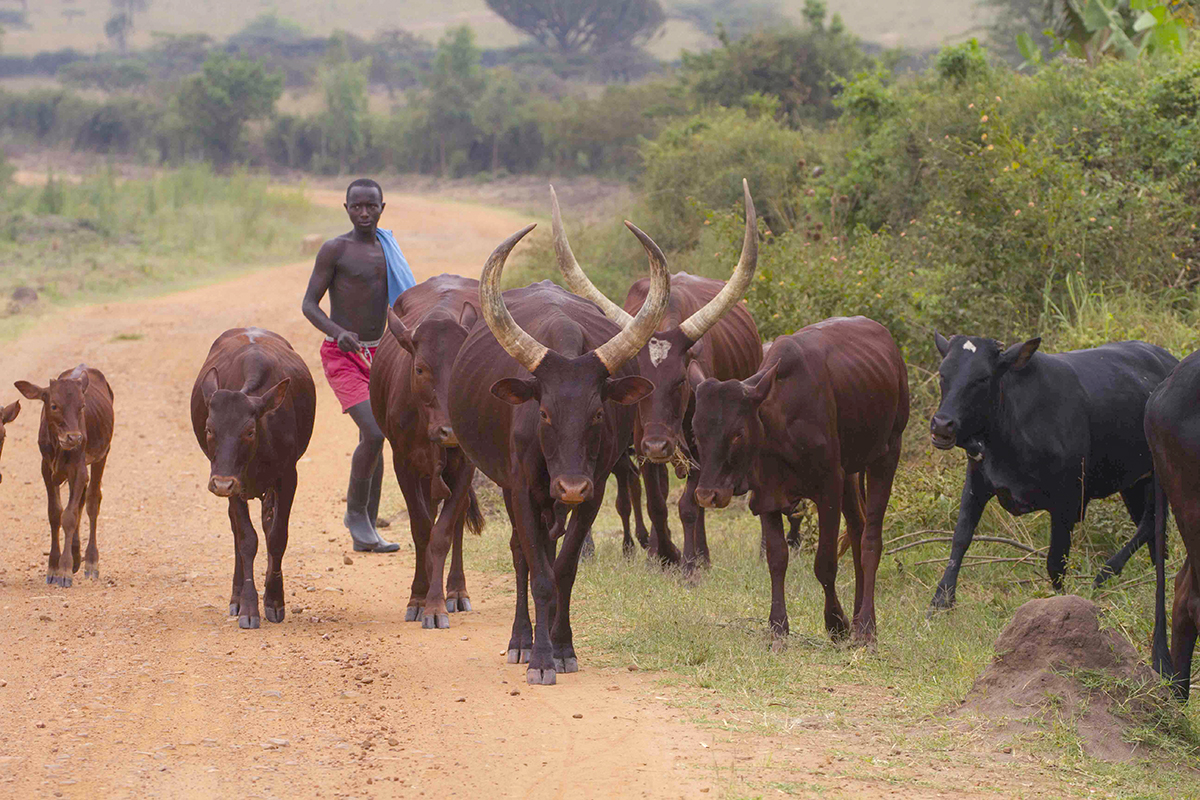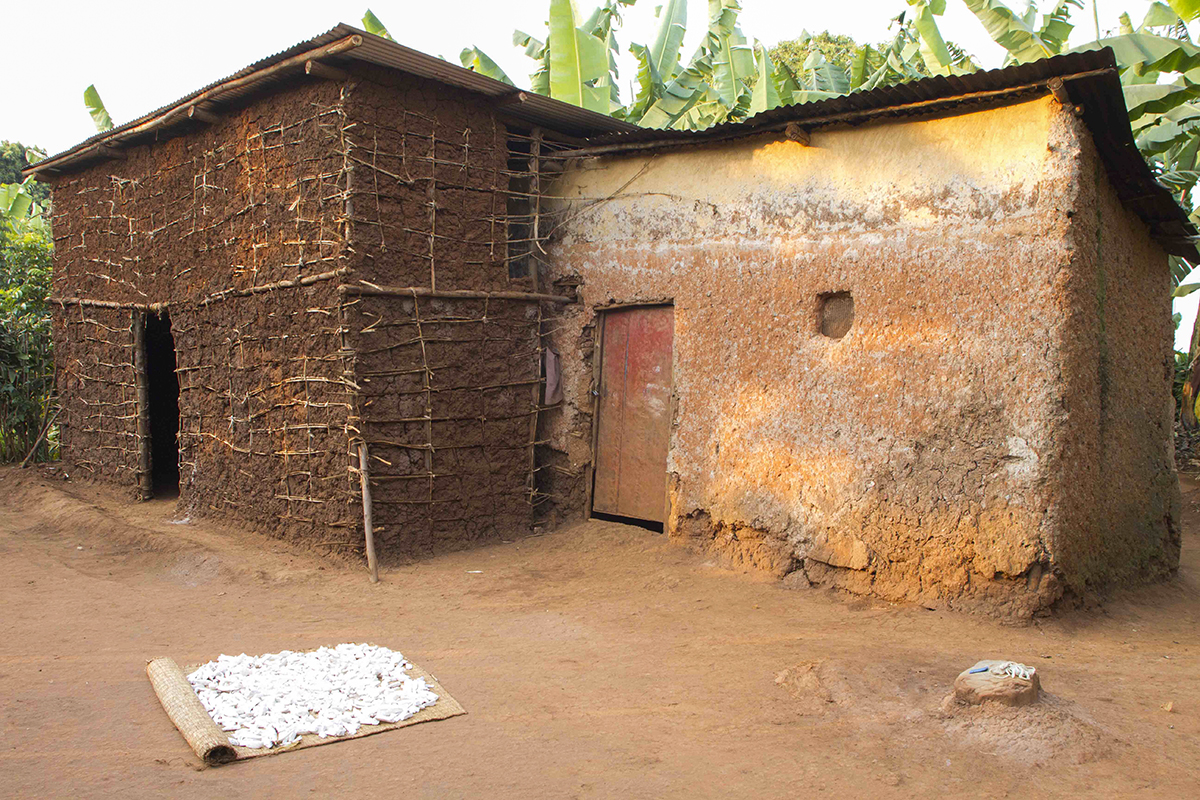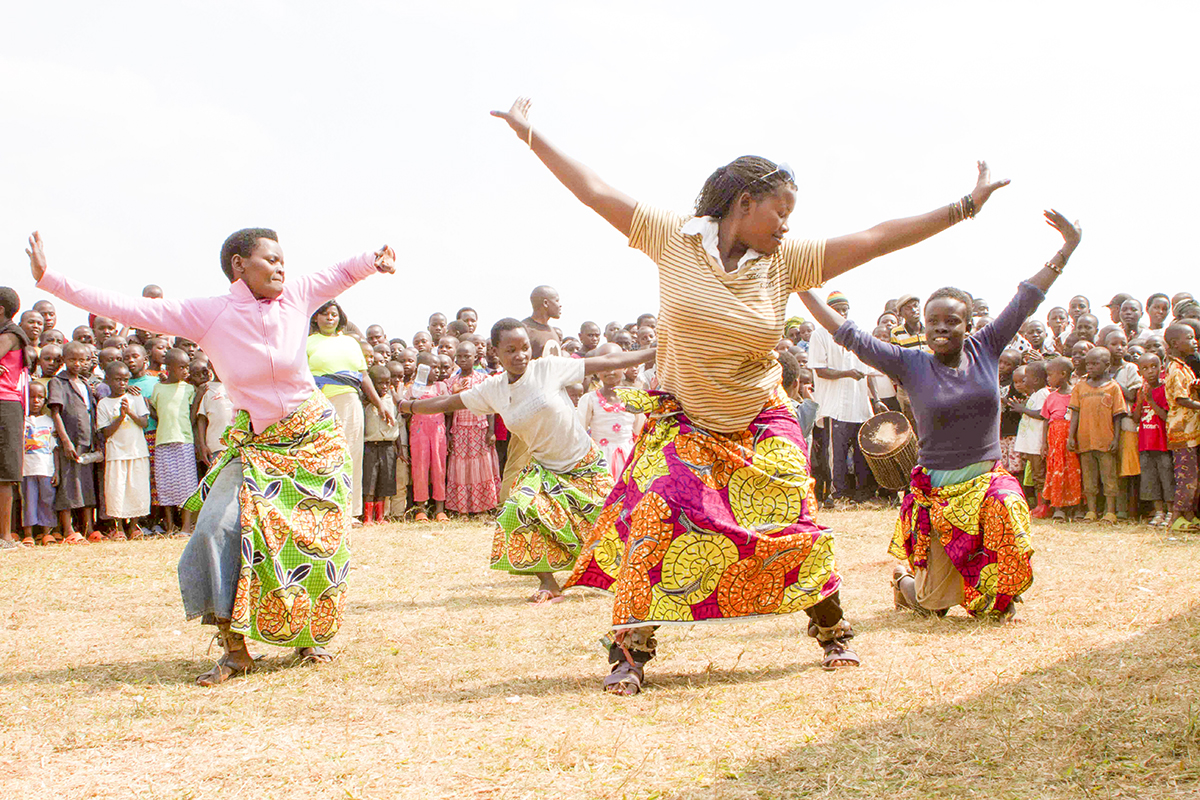Rwanda is located in the East African plateau and is geographically about the size of Maryland. It is a landlocked country surrounded by Uganda (north), Tanzania (east), Burundi (south) and the D.R. Congo (west/northwest).
Rwanda is 3,000 feet above sea level and much of the higher plateau is higher than 4,700 feet above sea level. The volcanic Virunga Mountains are located on the the northwest border of the D.R. Congo with the highest snow-capped peak (Mount Karisimbi) being 14,870 feet above sea level.
The population of Rwanda is approximately 10 million and the capital city is Kigali. Kinyarwanda, French and English are the three official languages however English is displacing French to become the number two language behind Kinyarwanda.
Tea, coffee, sorghum, beans, bananas and potatoes are the main agricultural products while furniture, small-scale beverages and cement are some of the revenue generating industrial sectors.
The flag of Rwanda was officially adopted on October 25, 2001 replacing the one in use since 1961 and was designed by a local artist (Alphonse Krimbenecyo). The blue stripe is symbolic of happiness and peace while the yellow stripe stands for the country’s mineral wealth and economic development.
The green stripe represents the natural resources and prosperity of the country. The sun and its rays represent unity, transparency and enlightenment from ignorance.
The Rwandan diet consists mainly of sweet potatoes, beans, corn, peas, millet and fruit. Rwandan food is neither spicy nor hot. People eat simple meals made with locally grown ingredients. A traditional breakfast consists of sweet potatoes and porridge, which is a mixture of sorghum, corn and millet, mixed with milk.
In urban areas such as Kigali, people usually have bread and tea for breakfast. Rwandans add lots of milk and sugar to their tea. Rwandans who live in rural areas rarely eat meat. Some families have cattle, but since cattle are considered a status symbol, people seldom slaughter them for meat. Many Rwandans in rural areas eat meat only once or twice a month.














